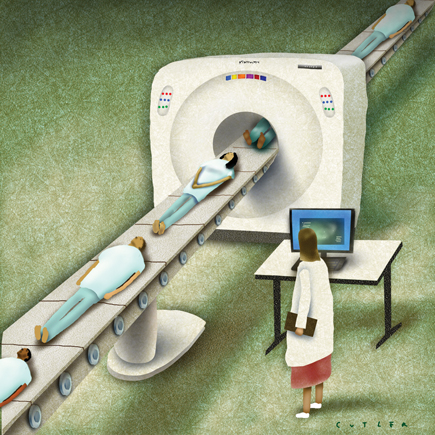Propoxyphene withdrawn, bevacizumab loses indication
Recalls, warnings, and approvals.
Recalls, warnings, withdrawals
A complete U.S. market withdrawal of propoxyphene (Darvon and Darvocet) based on new clinical data showing that the drug puts patients at risk of potentially serious or even fatal heart rhythm abnormalities. Physicians should stop prescribing and dispensing propoxyphene-containing products, tell patients currently taking the drugs to discontinue use and discuss alternative pain management strategies.

A class I recall of the Penumbra System Reperfusion Catheter 032 due to a manufacturing error that led to mid-shaft joint failures in some catheters. The company is advising customers to discontinue use of the product.
An expanded recall of Triton Pole Mount Infusion Pumps because the pump door open alarm does not always work to alert the user that the pump door is open. The condition has been found on 40% of pumps tested and could result in a free-flow perfusion, potentially causing serious injury or death.
A recall of Advanced Bionics' HiRes 90K cochlear implant device in response to two confirmed instances in which patients experienced severe pain, overly loud sounds and/or shocking sensations at 8 to 10 days after initial activation of their device and had to have the device removed.
A voluntary recall of all product lots of Children's Benadryl Allergy Fastmelt Tablets in cherry and grape flavors and all product lots of Junior Strength Motrin Caplets, 24 count, based on a manufacturer's review that found insufficiencies in the manufacturing process.
A recall of three Tylenol Cold Multi-Symptom liquid products in order to update the labeling and list alcohol as an ingredient on the front of the product packaging.
A recall of several cold decongestant medications (Refenesen Expectorant, Select Brand Mucus Relief Expectorant, QC Medifin Expectorant, and Leader Cough Tabs Expectorant) because they were mislabeled as containing only 200 mg of guaifenesin when they actually contain acetaminophen 325 mg, phenylephrine 5 mg and chlorpheniramine maleate 2 mg.
Approvals
A new indication for denosumab (new brand name: Xgeva) to help prevent skeletal-related events (SREs), including bone fracture and bone pain requiring radiation, in patients with cancer that has metastasized and damaged the bone. In trials of patients with breast and prostate cancer, denosumab increased the length of time to SRE compared to zoledronic acid (Zometa). The most serious side effects were hypocalcemia and osteonecrosis of the jaw. Denosumab was originally approved under another trade name, Prolia, to treat postmenopausal women with osteoporosis who are at high risk for bone fractures. Xgeva is administered using a higher dose and with more frequent dosing than Prolia.
Miscellaneous
The FDA is recommending that the breast cancer indication be removed from the label for bevacizumab (Avastin) based on a review of clinical trial data. From the results of four clinical studies of the drug in women with breast cancer, the agency concluded that the drug does not prolong overall survival in breast cancer patients or provide a sufficient benefit in slowing disease progression to outweigh the significant risk to patients. These risks include severe high blood pressure; bleeding and hemorrhage; the development of perforations in the body, including in the nose, stomach, and intestines; and heart attack or heart failure. The FDA's action does not affect the approvals of bevacizumab for colon, kidney, brain, and lung cancers and will not result in any immediate changes to the labeling. The FDA recommended that oncologists currently treating patients with the drug for metastatic breast cancer should use their medical judgment when deciding whether a patient should continue treatment with the drug or consider other therapeutic options. The breast cancer indication for bevacizumab was approved in February 2008 under the FDA's accelerated approval program.




